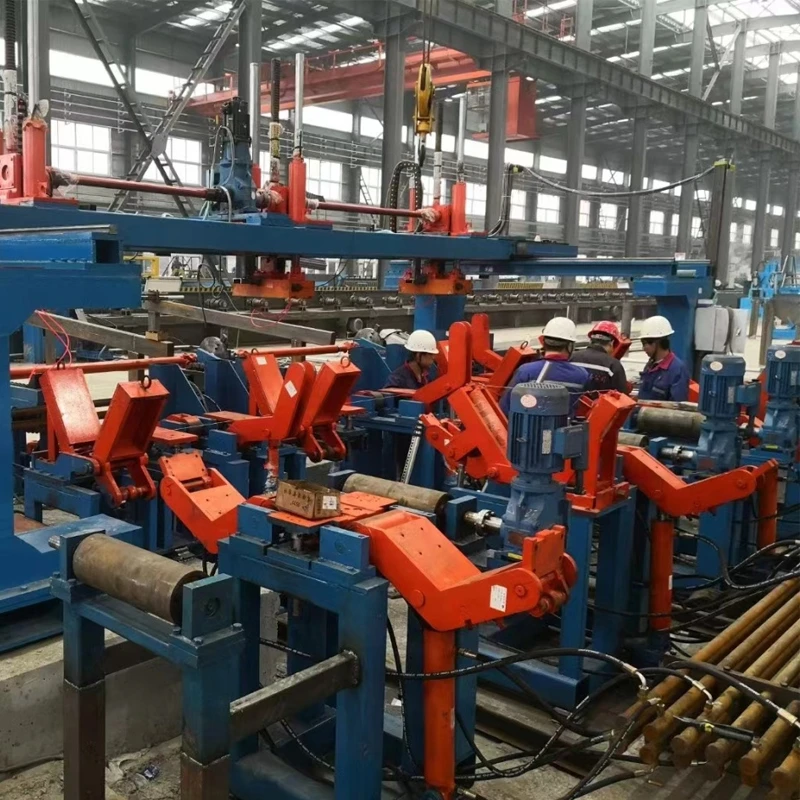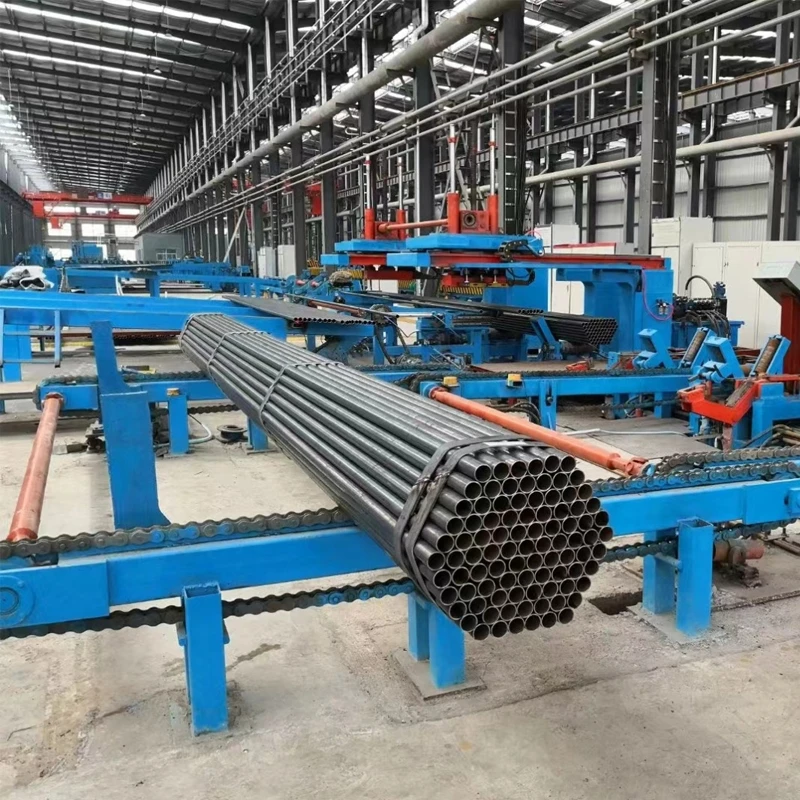Stacking Machine Products
In the ever-evolving landscape of industrial automation, automated pipe cutting machines have emerged as a cornerstone technology, deftly bridging the gap between efficiency and precision. These machines, now a staple in various industries, represent the pinnacle of engineering expertise and are essential tools for optimizing production processes.

Automated pipe cutting machines utilize advanced computerized systems to perform cutting tasks with unparalleled accuracy. Their cutting-edge technology ensures that each cut is executed with precision, significantly reducing waste and enhancing overall production quality. For industries where precision is paramount, such as aerospace, automotive, and construction, these machines have become indispensable.
One of the remarkable features of automated pipe cutting machines is their ability to integrate seamlessly into existing production workflows. Their flexibility allows them to handle a wide variety of materials, including steel, aluminum, copper, and plastics, each presenting unique challenges that require sophisticated handling. By utilizing programmable systems, operators can configure machines to accommodate different pipe sizes and thicknesses, ensuring consistent results across diverse materials.

The true strength of automated pipe cutting machines lies not only in their technical prowess but also in their contribution to operational efficiency. These machines drastically reduce manual labor, allowing companies to allocate human resources to more strategic tasks. The automation of cutting tasks minimizes the likelihood of human error, ensuring that production remains uninterrupted and efficient. This aspect is particularly crucial in industries where downtime can result in significant financial losses.
From an environmental perspective, automated pipe cutting machines contribute to sustainability by minimizing material wastage. Traditional cutting methods often result in considerable scrap material, which has both economic and ecological consequences. However, the precision of automated systems ensures optimal material usage, aligning with sustainable practices that are increasingly becoming a focal point for industries worldwide.
automated pipe cutting machine
As industry experts advocate for the adoption of automated systems, the versatility and reliability of pipe cutting machines continue to highlight their importance. These machines are backed by extensive research and development, ensuring that they adhere to the highest standards of quality and safety. Manufacturers of these machines constantly update their technologies, incorporating feedback from real-world applications to drive innovation.
Selection of the right automated pipe cutting machine necessitates a thorough understanding of a company’s specific needs. Factors such as production volume, material requirements, and integration with existing systems need careful consideration. Consulting with seasoned industry professionals can provide invaluable insights, aiding businesses in making informed decisions that align with their operational goals.
Trustworthiness is cemented through the machine manufacturers' commitment to quality assurance and customer support. Reputable manufacturers offer comprehensive training and service packages, ensuring that users can efficiently leverage their investments. Additionally, the provision of regular maintenance updates and responsive technical assistance further solidifies trust between the user and the manufacturer.
In summary, automated pipe cutting machines represent a robust fusion of experience, expertise, authoritativeness, and trustworthiness. They stand as a testament to technological advancement, driving industries towards more efficient and eco-friendly operations. As more industries recognize the myriad benefits these machines offer, their role as a linchpin in industrial automation is set to become even more pronounced, paving the way for future innovations.
-
High Frequency Straight Seam Welded Pipe Production Line|BzZhou Xinghua|Precision Welding&EfficiencyNewsJul.30,2025
-
High Frequency Straight Seam Welded Pipe Production Line - BzZhou Xinghua|Precision Engineering&EfficiencyNewsJul.30,2025
-
High-Frequency Straight Seam Welded Pipe Production Line-BzZhou Xinghua Machinery Equipment Manufacturing Co., LTD.NewsJul.30,2025
-
High-Frequency Straight Seam Welded Pipe Production Line-BzZhou Xinghua Machinery Equipment Manufacturing Co., LTD.|Precision Manufacturing, High EfficiencyNewsJul.30,2025
-
High Frequency Straight Seam Welded Pipe Production Line-BzZhou Xinghua Machinery Equipment Manufacturing Co., LTD.|Precision Steel Pipe Manufacturing&Industrial EfficiencyNewsJul.29,2025
-
High-Frequency Straight Seam Welded Pipe Production Line-BzZhou Xinghua Machinery Equipment Manufacturing Co., LTD.|Precision Steel Pipe Manufacturing&Industrial EfficiencyNewsJul.29,2025


